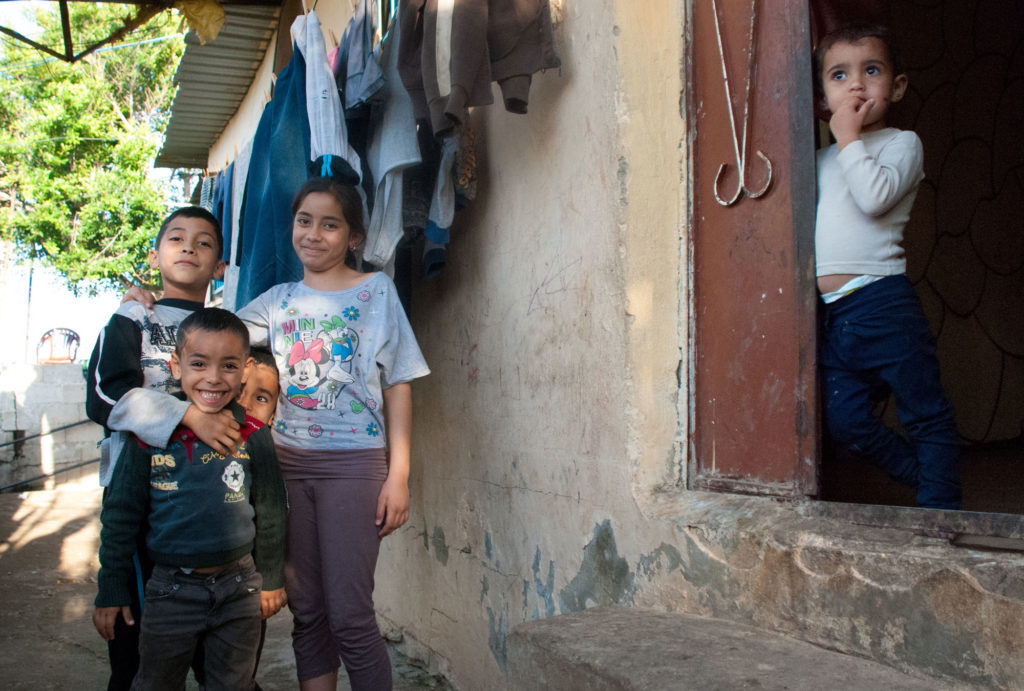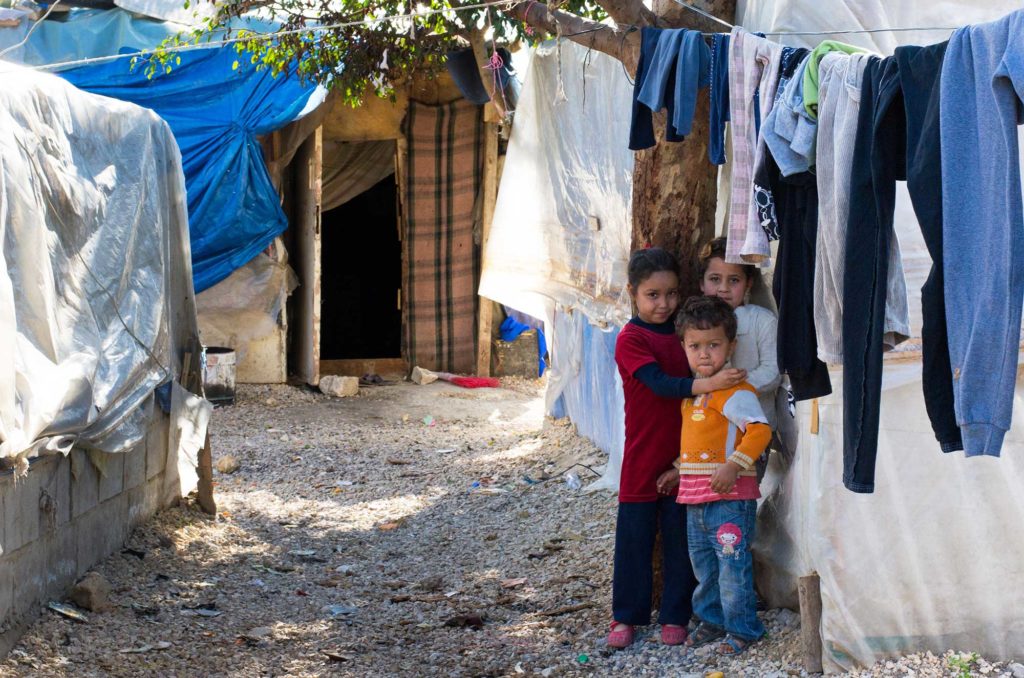Jan, 2025
Burj El Barajneh is a Palestinian refugee camp located in the southern suburbs of Beirut, the capital of Lebanon.
The camp was established in 1948 after the “Nakba,” when Palestinians were forced to flee their homes and villages. The camp was built on one square kilometer (0.38 square miles) of land to accommodate 10,000 refugees. Today, Bur El Burajneh is home to some 31,000 refugees, including thousands who have recently fled fighting in Syria.
Residents of this overcrowded camp face many challenges due to the lack of proper infrastructure, limited job opportunities, and under-funded health facilities and educational institutions.
Anera first extended its services to Burj El Barajneh in 2006 to provide relief following the 2006 Lebanon War that heavily destroyed the southern suburb of Beirut and the camp. While substantial relief efforts continue today, especially with the presence of some 1.5 million Syrian refugees in Lebanon, Anera’s programs also advance long-term, sustainable development in the areas of health, education and economic development.

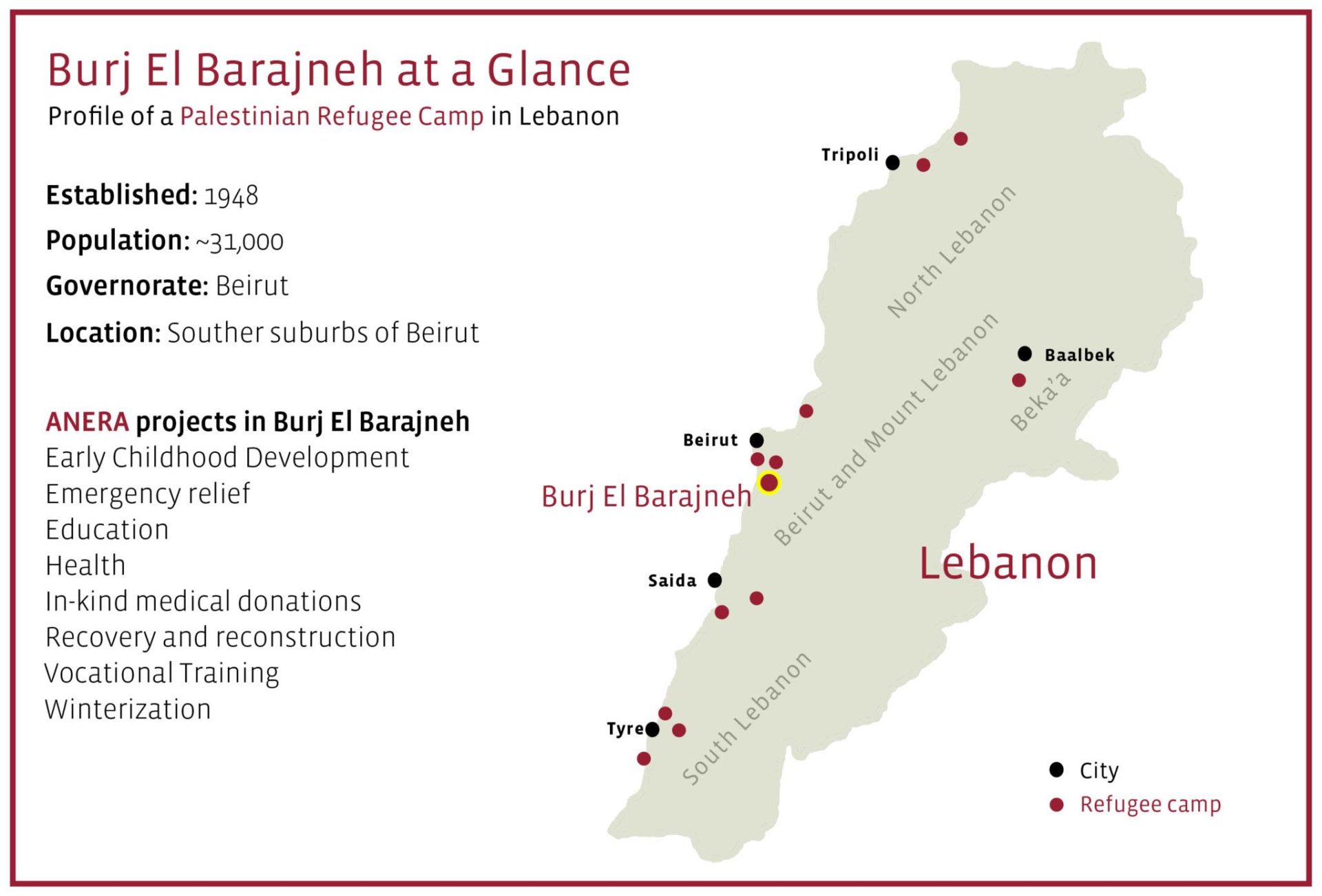
Early Childhood Education in Burj El Barajneh
Early childhood development is critical to a child’s future success and Anera supports Burj El Burajneh’s preschools in in a variety of ways. To promote reading, Anera supplies many schools and community centers with storybooks for 3-to-5-year-olds and organizes sessions, in cooperation with organizations like at the Women’s Program Center, to teach parents how to use books as a tool to encourage learning in their families.
In partnership with the United Methodist Committee on Relief, Anera has also rehabilitated a preschool in the camp. The renovations have created a healthy and safe environment for children to learn and socialize in, restoring a relative sense of normalcy in their lives in otherwise very abnormal and difficult circumstances.
“When we first opened the newly rehabbed kindergarten, the children started running around full of joy and excitement,” preschool teacher Sarah Mchayrfe says, smiling at the memory. “They thought it was a new public park.”

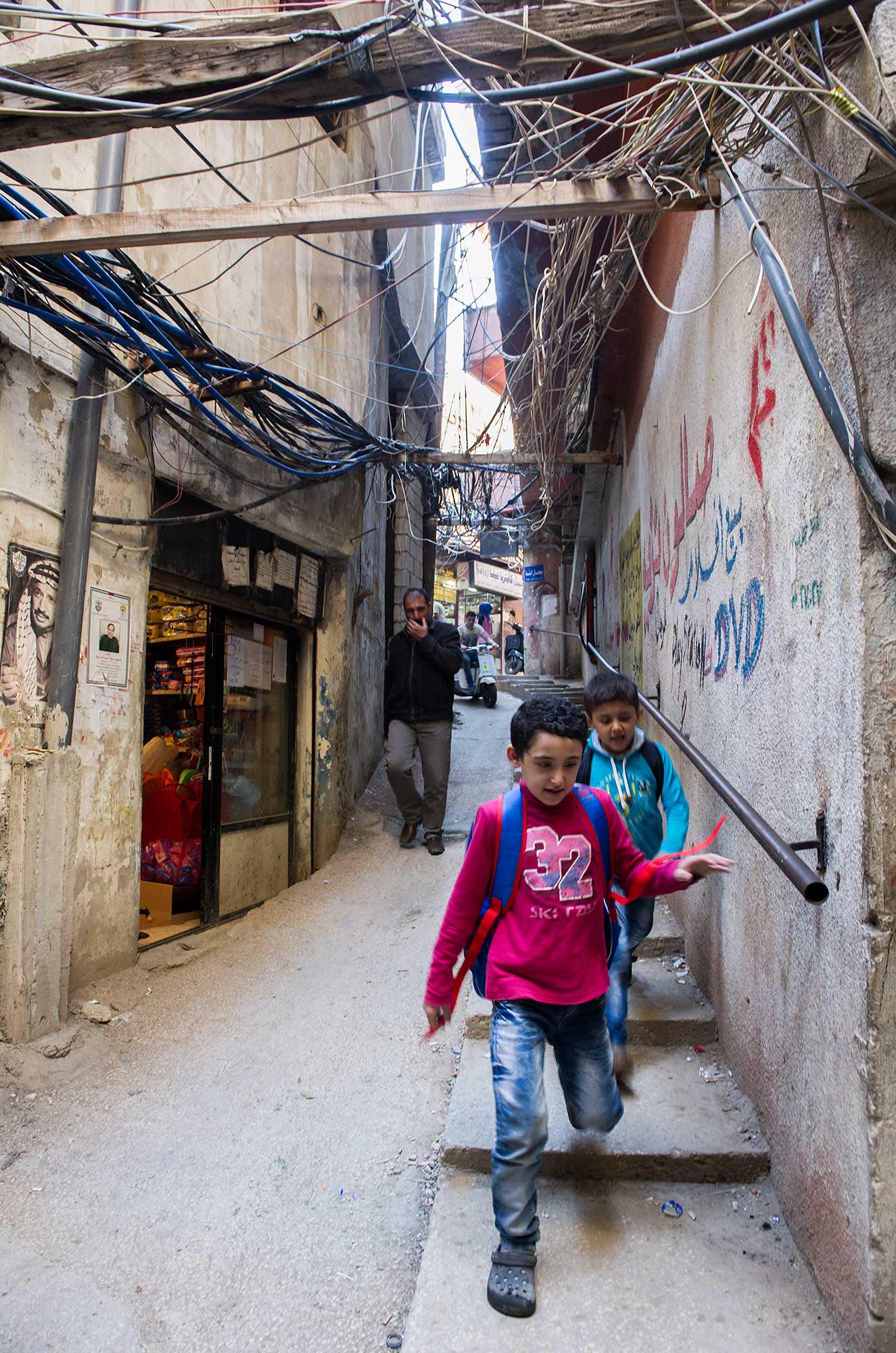
Health and Awareness for Burj El Barajneh Camp
Community and family health is a key pillar in Anera’s work. Anera public health work in the camp started in 2006. Working with local organizations and health clinics, Anera’s campaigns raised awareness about diarrhea treatment, smoking cessation and breastfeeding. The long-term goal was to put health on the agenda of local groups working in poor and marginalized communities and to use simple, smart and cost-effective practices that can be adopted to save on cost and foster self-reliance. The program encouraged community organizations to continue and expand beyond the campaign, using materials and guidelines provided by Anera.
Anera’s health promotion activities currently focus on the rational use of medicines as well as healthy eating, hygiene, and preventing parasitic infections. These activities are often combined with Anera’s in-kind deliveries of hygiene, baby, and women’s dignity kits. Adolescents are especially vulnerable and Anera has developed specific curricula for youth that address a range of topics, from cyber safety and hygiene to sanitation and reproductive health.

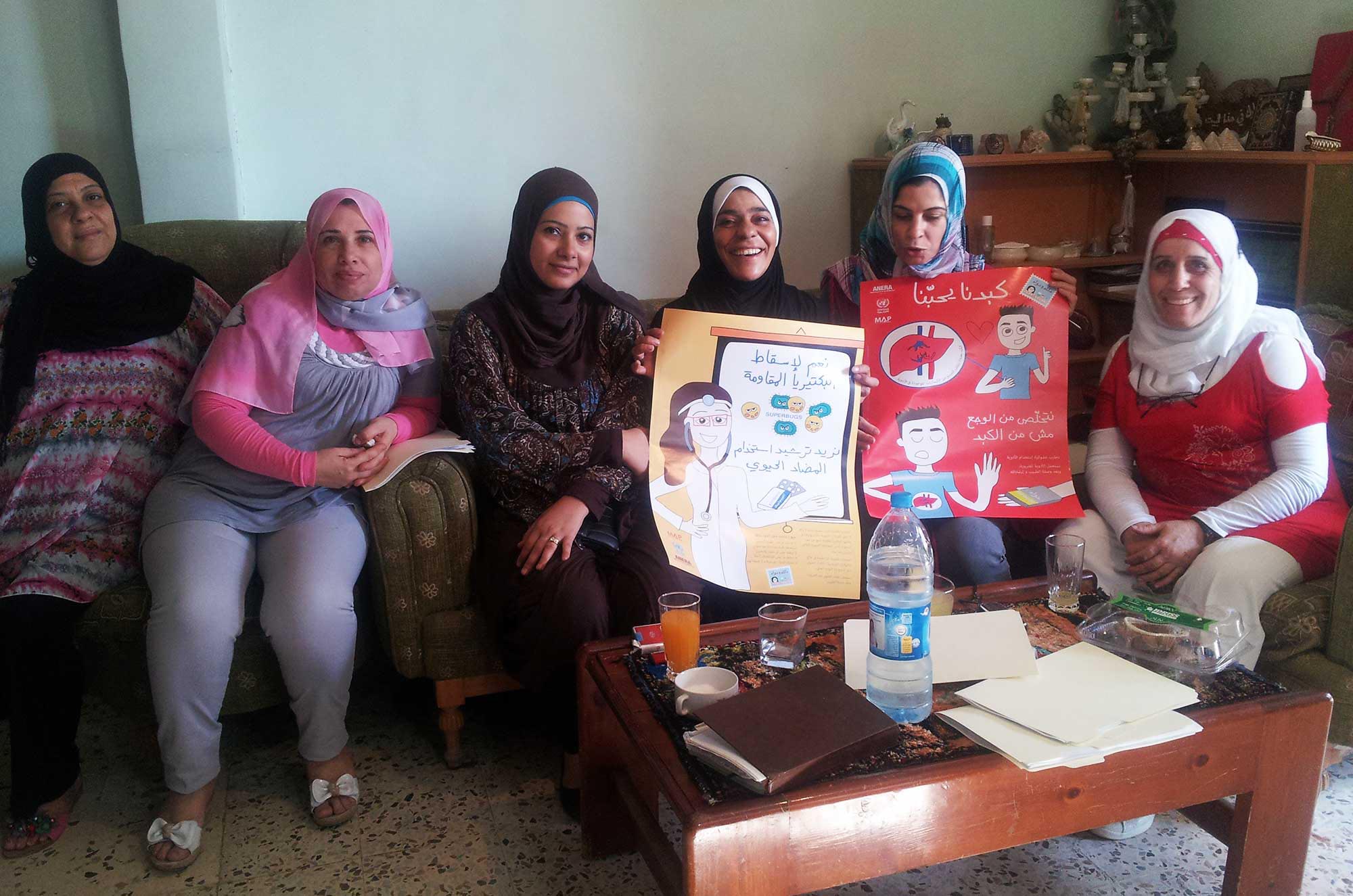
Medical Relief and In-kind Deliveries
Since 2006, Anera has supplied valuable medicines, such as insulin and injectable antibiotics, and medical supplies to Burj el Burajneh’s clinics and hospitals. Other in-kind efforts include the distribution of hygiene, winter, and baby kits, quilts, and clothing vouchers. Working through a network of local partners and clinics, this program responds all year long to people’s needs, delivering millions of dollars’ worth of relief items.
In June 2015, Anera distributed Ramadan food packages to 900 Palestinian refugee families from Syria now residing in Burj el Burajneh. Each package contained a variety of essentials such as rice, lentils, beans, dates, sugar, tea, milk, and traditional jallab juice. There was enough to feed a family for up to a month, critical for families struggling to pay the most basic of services. Dima Zayat, Anera’s in-kind health manager, said the food packages were a welcome relief for refugees who have suffered so much. “We are glad we were able to distribute these big parcels on time. Ramadan is supposed to be a time of joy and sharing and now you can see how happy the young children are to help their parents carry the gift boxes back home.”


